A business intelligence developer in 2025 designs and builds systems that help organizations turn raw data into actionable business intelligence. This role holds critical value as companies depend on accurate insights for success. New technologies, such as AI and self-service analytics, allow teams to analyze data quickly and independently. Platforms like FineBI, created by FanRuan, lead this evolution by offering real-time data analysis and interactive dashboards. Industry reports highlight how FineBI empowers non-technical users and supports digital transformation across industries.
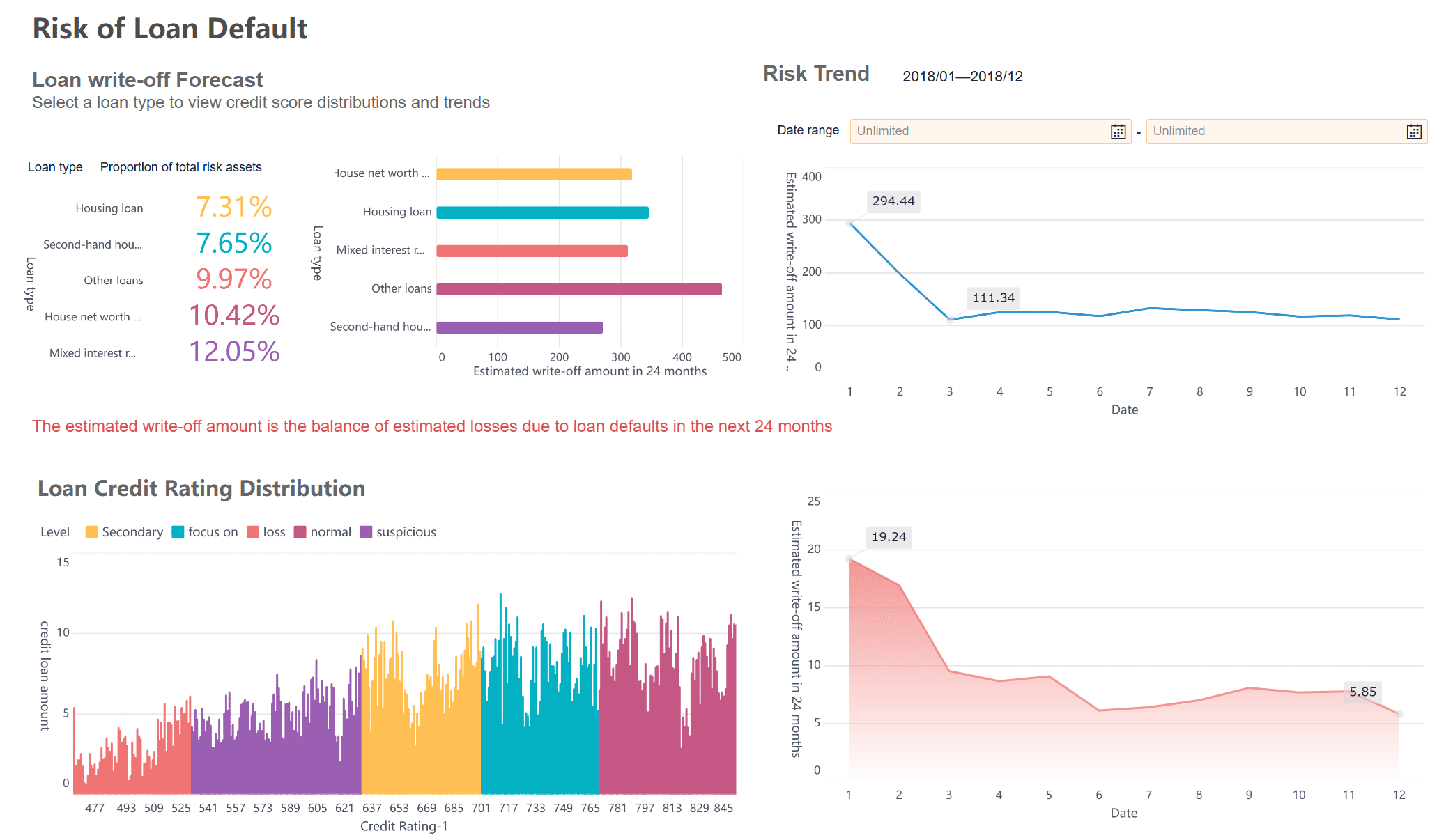
The demand for business intelligence developers remains strong in 2025, as shown by competitive salaries worldwide:
| Experience Level | Salary Range (USD) |
|---|---|
| Entry-Level (0–2 years) | $85,000–$105,000 |
| Mid-Level (3–5 years) | $115,000–$140,000 |
| Senior-Level (5+ years) | $150,000–$180,000 |
Every demo in this article was designed using FineBI. Ready to unlock smarter insights? Click below to start your free FineBI trial and see what’s possible!
A business intelligence developer in 2025 plays a central role in helping organizations turn raw data into valuable insights. This professional bridges the gap between business needs and technical solutions, ensuring that companies can make informed decisions quickly and accurately.
A business intelligence developer collects, processes, and organizes data from many sources. They work with data engineers to build and maintain data warehouses. These warehouses store information from databases, cloud platforms, and external systems. The developer supervises data entry, ensures data quality, and creates policies for data collection and analysis. They often use advanced business intelligence solutions to automate data integration and improve efficiency.
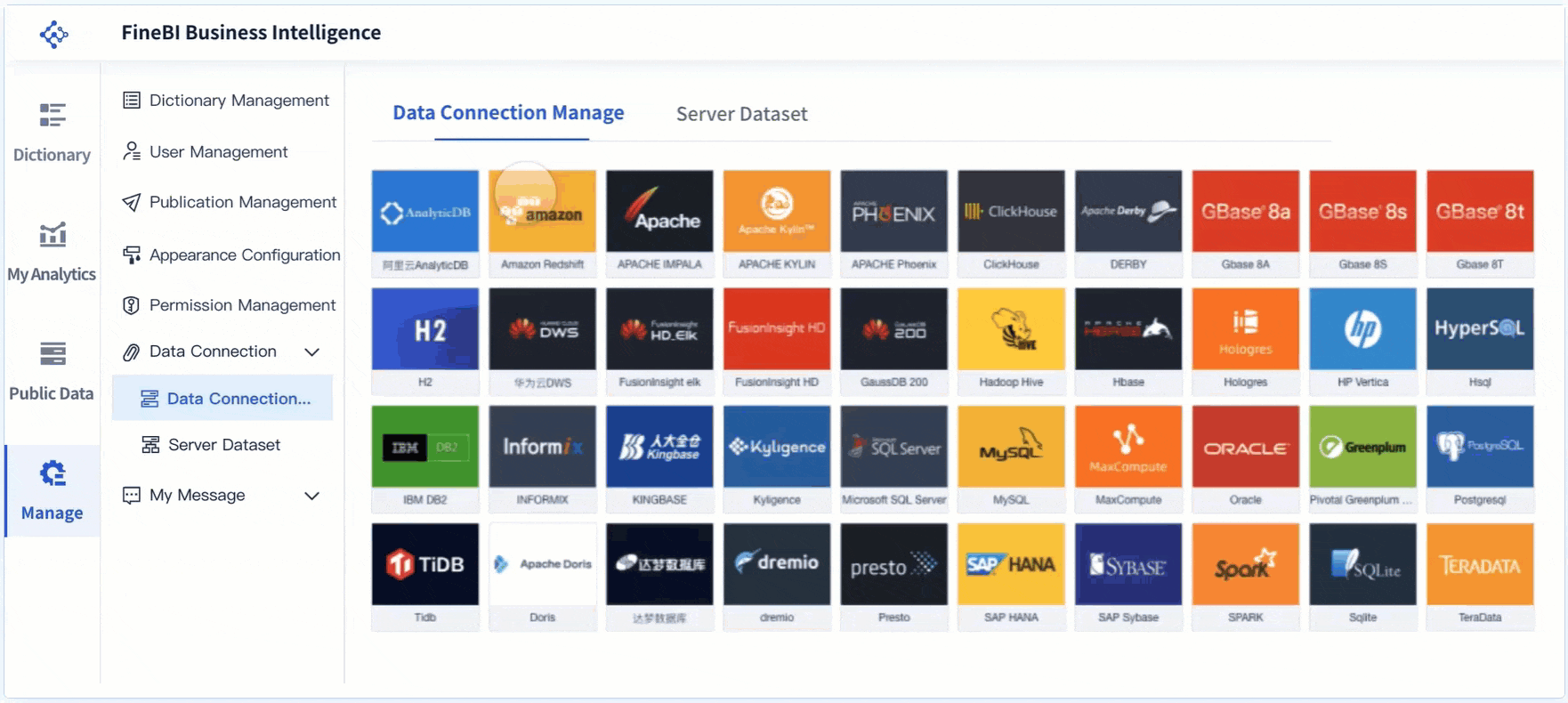
Tip: Modern business intelligence developers use platforms like FineBI to connect to over 60 data sources, including cloud data warehouses and big data platforms. This allows organizations to unify their data for better business analytics.
Data visualization is another key responsibility. A business intelligence developer creates dashboards and reports that turn complex data into clear visuals. These visuals help managers and teams understand trends, track key performance indicators (KPIs), and spot problems early. Developers use data visualization tools to design interactive dashboards that update in real time. They also test and optimize these tools to ensure accuracy and usability.
Business intelligence developers drive value across industries by enabling data-driven decision making. They design systems that deliver real-time insights and predictive analytics. This supports faster and more accurate decisions at every level of the organization.
| Industry | BI Applications & Outcomes |
|---|---|
| Healthcare | Customized treatment plans, hospital operations efficiency, patient readmission forecasting, faster drug development |
| Telecommunications | Network performance monitoring, customer retention strategies, data leakage prevention |
| Supply Chain & Logistics | Inventory planning, delivery route optimization, vendor reliability tracking |
| Manufacturing | Maintenance planning, cost and resource tracking |
| Retail & E-commerce | Sales forecasting, supply chain analysis, customer relationship management, procurement management, cross-selling opportunities |
| Finance | Expense tracking, risk management, cash flow optimization, fraud detection |
| Human Resources | Attrition trend analysis, diversity hiring insights, employee engagement metrics |
| Media & Entertainment | Content recommendation, pricing optimization, managing large volumes of diverse data |
Business intelligence developers help companies like Tesla, Uber, and Walmart use data to improve customer satisfaction, optimize operations, and stay ahead of competitors. They ensure that data visualization and KPI tracking are available to all departments, which leads to better strategic planning and proactive management.
A recent case study from the financial sector shows that business intelligence developers define key success factors, such as timely delivery of intelligence and linking insights to business outcomes. By establishing KPIs for both tangible and intangible assets, they help executives make better decisions and improve overall performance.
Research shows that business intelligence improves marketing strategies, decision-making, and competitive advantage. BI tools, managed by skilled developers, provide current and historical data in accessible formats. This leads to greater efficiency, better understanding of market trends, and stronger competitive positioning.
The role of the business intelligence developer has changed rapidly between 2020 and 2025. Today, almost all executives invest in big data and AI for decision-making. By 2025, most enterprise applications include AI-driven analytics, and real-time analytics has become standard.
Organizations that promote data democratization outperform their peers. Business intelligence developers play a key role in this success by making data accessible and actionable for everyone. They help companies overcome challenges such as skills gaps and data privacy concerns, ensuring that business intelligence solutions deliver maximum value.
A business intelligence developer starts each day by preparing data for analysis and reporting. This process takes up a significant part of their work. According to industry surveys, developers and other data professionals spend about one-third of their time on data preparation. Nearly 40% of these professionals spend half their time preparing data instead of analyzing it.
The most common daily data preparation tasks include:
Data preparation is not a one-time task. Developers must refine and update datasets as new data sources appear or as business requirements change. This ongoing process ensures that the data used for reporting and data analytics remains accurate and useful.
Tip: Effective data preparation leads to better business intelligence and more reliable reporting. Developers who focus on data quality help organizations make smarter decisions.
After preparing the data, a business intelligence developer moves on to building data dashboards and reports. This step transforms raw data into clear, actionable insights for decision-makers. Developers follow a series of best practices to create effective dashboards:
Developers also set up security features, user permissions, and row-level access to protect sensitive information. They use modern BI tools, such as FineBI, to create dashboards that are interactive, web-based, and responsive across devices. These dashboards present summarized, actionable data in a way that supports fast and informed decision-making.
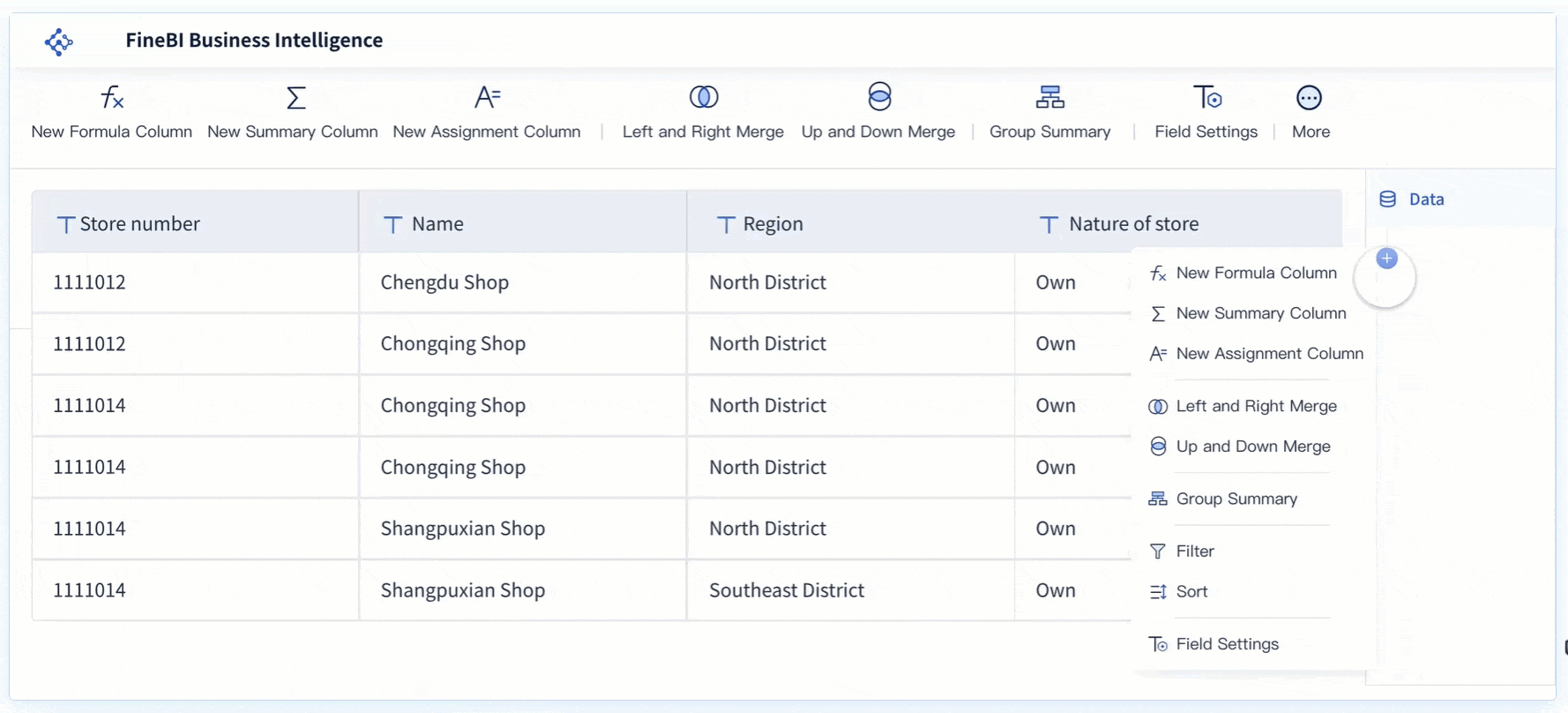
Note: Well-designed dashboards help users track performance, spot trends, and make better decisions. Developers focus on clarity and usability to ensure everyone can benefit from business intelligence.
Collaboration plays a key role in the daily routine of a business intelligence developer. Modern organizations encourage teams to work together on data analysis and reporting. Developers use collaborative BI platforms that allow multiple users to share reports, build dashboards, and explore data together.
Collaboration not only improves the quality of data analytics but also helps democratize access to business intelligence. By working together, teams can generate and share insights more effectively, leading to better business outcomes.
A successful business intelligence developer in 2025 needs a balanced mix of technical and soft skills. These skills help them manage data, create useful reports, and work well with others. As technology changes, the demand for new abilities grows. Companies look for professionals who can keep up with these changes and deliver strong business intelligence solutions.
SQL remains a core skill for anyone working with business intelligence. Developers use SQL to query databases, extract information, and prepare data for analysis. ETL (Extract, Transform, Load) tools help them move data from different sources into a single system. Mastery of ETL processes ensures that data is clean, accurate, and ready for reporting.
Today’s job market also values experience with cloud platforms like AWS, Azure, and Google Cloud Platform. Developers often use programming languages such as Python, Ruby, and Apache Spark to automate tasks and process large datasets. Skills in automation, scripting, and enterprise architecture are also important. Many employers seek certifications like AWS Certified Data Analytics or Google Professional Data Engineer to confirm these abilities.
The World Economic Forum predicts that skills in AI, big data, and cybersecurity will become even more important by 2025. Developers must keep learning to stay ahead in this fast-changing field.
Data modeling helps developers organize and structure data for business intelligence. They design models that show how data connects across different systems. Good data modeling makes it easier to find patterns, create reports, and support decision-making. Developers use both traditional databases and NoSQL systems to handle different types of data. They must understand how to build models that work for both structured and unstructured information.
Strong communication skills set top developers apart. They must explain complex data findings to people who may not have technical backgrounds. Clear communication helps teams understand reports and take action based on insights. Developers often present their work to managers, lead meetings, and write documentation. They also collaborate with IT and business teams to make sure everyone works toward the same goals.
| Soft Skill | Description |
|---|---|
| Storytelling | Ability to create compelling narratives around data to engage stakeholders. |
| Presentation Skills | Essential for clearly communicating insights with enthusiasm and confidence. |
| Business Savvy | Deep understanding of industry, company goals, and KPIs to derive meaningful conclusions. |
| Communication | Frequent collaboration and clear communication across teams and presentations. |
| Problem-solving | Identifying and addressing technical and business challenges through data analysis. |
| Time Management | Managing multiple projects and tight deadlines effectively. |
| Attention to Detail | Ensuring accuracy in data handling to avoid errors and spot anomalies. |
| Teamwork | Being a strong team player and showing independence. |
Industry experts agree that communication is vital for business intelligence success. Developers must share insights clearly so others can understand and use them.
Problem-solving is another key part of business intelligence skills. Developers face many challenges, such as fixing data errors or finding the best way to present information. They must think critically and find solutions quickly. Good problem-solvers can spot issues early and suggest improvements. They also manage their time well, handle multiple projects, and pay close attention to details.
Tip: Employers look for developers who show strong business acumen, manage time well, and work effectively in teams. These soft skills help them deliver better results and support business goals.
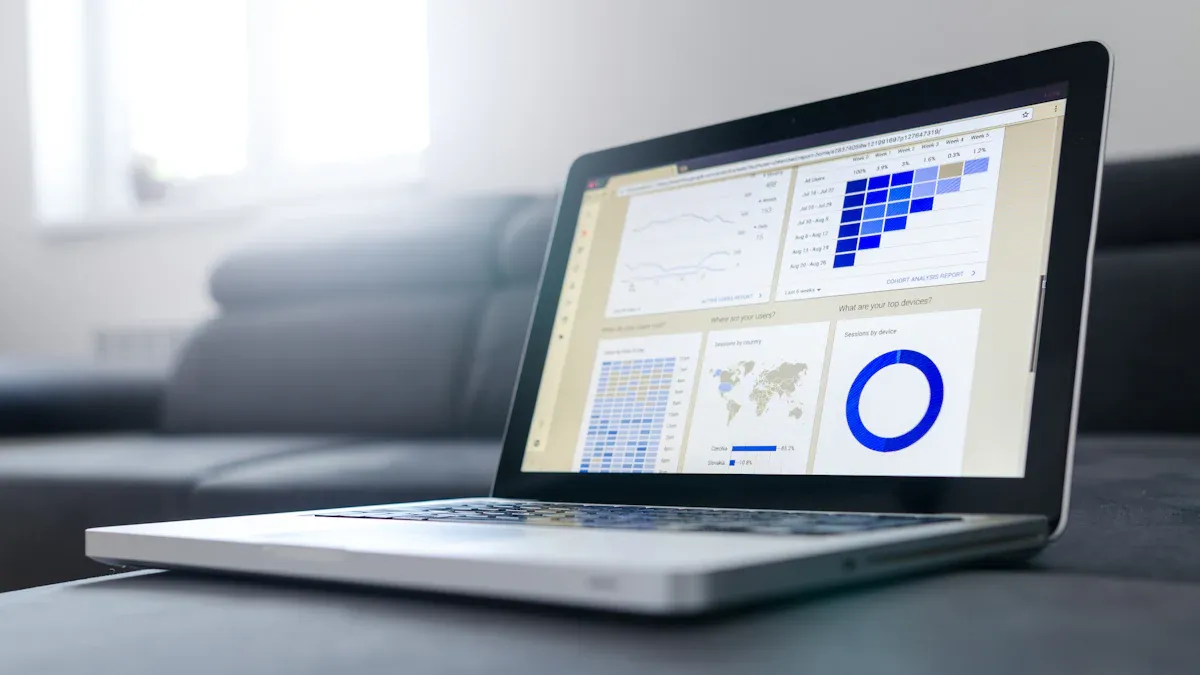
FineBI stands out as a leading business intelligence software in 2025. The platform offers a high-performance computing engine that processes large volumes of data and supports thousands of users at the same time. FineBI provides an intuitive drag-and-drop interface, making self-service analytics accessible to users with limited technical skills. The platform connects to over 100 data sources, including big data platforms and relational databases. This capability allows organizations to unify their data for comprehensive analysis.

FineBI supports real-time analytics, enabling teams to generate actionable insights instantly. Users can choose from more than 60 chart types for advanced data visualization. Enterprise-level data permission control ensures that only authorized users can access sensitive information. FineBI also offers training and customer support, helping organizations adopt business intelligence tools quickly and effectively.
Tip: FineBI’s integration with FineReport creates a complete business intelligence solution, combining IT-driven reporting with user-friendly analytics.
Business intelligence developers in 2025 rely on advanced data integration solutions to manage information from multiple sources. FineBI works seamlessly with FineDataLink, a platform that processes and cleans data before analysis. FineDataLink supports real-time incremental data synchronization and robust ETL/ELT processes. This integration shortens data update times and improves performance, allowing business users to access actionable insights faster.
Many organizations use a variety of data integration platforms. The table below highlights some leading solutions and their features:
| Platform | Data Integration Features and Highlights in 2025 |
|---|---|
| Google BigQuery & Looker | Multi-cloud warehousing, natural language queries, integration with Tableau and Power BI |
| SAP Analytics Cloud | Real-time inputs, integration with SAP HANA, predictive analytics |
| TIBCO Spotfire | Streaming analytics, built-in data wrangling, Python/R integration |
| SAS Viya | Real-time insights, predictive analytics, cloud platform integration |
| IBM Cognos Analytics | Self-service discovery, governed reporting, automation and scale |
| Salesforce Tableau | AI-powered analytics, metric alerts, unified customer data |
| Microsoft Power BI | Microsoft ecosystem integration, enhanced AI features, governance controls |
| Qlik Cloud | Hybrid architectures, AI/ML suite, real-time alerts |
| Domo | Self-service analytics, prebuilt apps, mobile KPI access |
| ThoughtSpot | AI-powered search, live data updates, cloud warehouse connections |
| Sisense | Pro-code/low-code/no-code, embedded analytics, intelligent alerting |
| Oracle Analytics Cloud | Oracle ERP/CRM/HCM integration, augmented analytics, natural language querying |
Developers select data integration solutions based on organizational needs, scalability, and connectivity. FineBI’s compatibility with FineDataLink and other platforms ensures efficient data management and analysis.
AI and automation have become essential in business intelligence by 2025. Modern business intelligence tools embed AI-driven workflows that connect data, automate tasks, and enable real-time decision-making. FineBI incorporates machine learning and predictive analytics, helping users forecast trends and optimize business processes.
Automation reduces manual ETL work and improves productivity. Low-code and no-code platforms allow business users to build workflows without deep technical skills. Developer tools extend platform functionality with scripting and custom code for complex analytics. AI automation platforms support human-machine collaboration, automating repetitive tasks and letting people focus on creativity and judgment.
Business intelligence developers use these technologies to deliver actionable insights quickly and efficiently. AI and automation make business intelligence more accessible and powerful for organizations of all sizes.
A strong educational background helps individuals start a career in business intelligence. Most professionals in this field hold degrees that provide both technical and analytical skills. The table below shows the most common educational backgrounds and their relevance:
| Common Educational Backgrounds | Description and Relevance |
|---|---|
| Computer Science / Information Systems | Teaches programming, database management, and systems analysis. |
| Business Analytics / Data Science | Focuses on statistics, predictive modeling, and data visualization. |
| Finance / Economics | Offers knowledge of financial principles and economic trends. |
| Management Information Systems (MIS) | Combines IT skills with business management. |
| Mathematics / Statistics | Emphasizes analytical rigor and quantitative skills. |
Many employers now value interdisciplinary studies and practical experience as much as formal degrees. Internships, project work, and hands-on training often help candidates stand out.
Tip: Students who combine technical courses with business or industry-specific classes gain a broader perspective and become more adaptable in the workplace.
Certifications show employers that a candidate has mastered important skills and tools. In 2025, several certifications stand out for those seeking roles in business intelligence. The table below lists some of the most valued certifications, their focus, and why employers appreciate them:
| Certification Name | Description | Employer Value and Salary Insight |
|---|---|---|
| Microsoft Certified: Power BI Data Analyst Associate | Validates Power BI, data visualization, and analytics skills. | Highly regarded for Microsoft BI environments. |
| Certified Business Intelligence Professional (CBIP) | Senior-level, covers leadership, analytics, and integration. | In-demand for advanced BI roles. |
| IBM Data Analyst Professional Certificate | Focuses on data analysis, visualization, and reporting. | Valued for entry and intermediate BI positions. |
| Tableau Certified Data Analyst | Confirms advanced Tableau product skills. | Recognized for Tableau-based analysis. |
| Google Business Intelligence Professional Certificate | Covers BI foundations, data models, and dashboards. | Accessible and valued for foundational BI skills. |
| QlikView Business Analyst | Certification for QlikView application design and analysis. | Preferred for QlikView BI tool roles. |
| SAP Certified Application Associate: BusinessObjects BI | Validates SAP BI platform deployment and management. | Important for SAP BI roles. |
| SAS Certified Specialist: Visual Business Analytics | Certification for SAS Visual Analytics. | Valued for SAS BI tool expertise. |
Employers look for certifications that match the tools and platforms used in their organizations. Certifications that include real-world projects and practical application are especially valuable. They also help candidates earn higher salaries and advance more quickly.
Career advancement in business intelligence follows a clear path. Most professionals start in entry-level roles and move up as they gain experience and skills. The table below outlines typical career stages and responsibilities:
| Career Stage | Typical Roles | Description & Responsibilities |
|---|---|---|
| Entry-Level | Data Analyst, Database Developer | Analyze data trends, design and test database systems. |
| Mid-Level | Business Intelligence Developer, Senior BI Developer | Develop dashboards, support BI systems, mentor junior staff, lead projects. |
| Advanced | BI Architect | Design and implement BI frameworks and tools for organizations. |
| Leadership | BI Manager | Manage BI teams, oversee projects, set goals, and align BI with business objectives. |
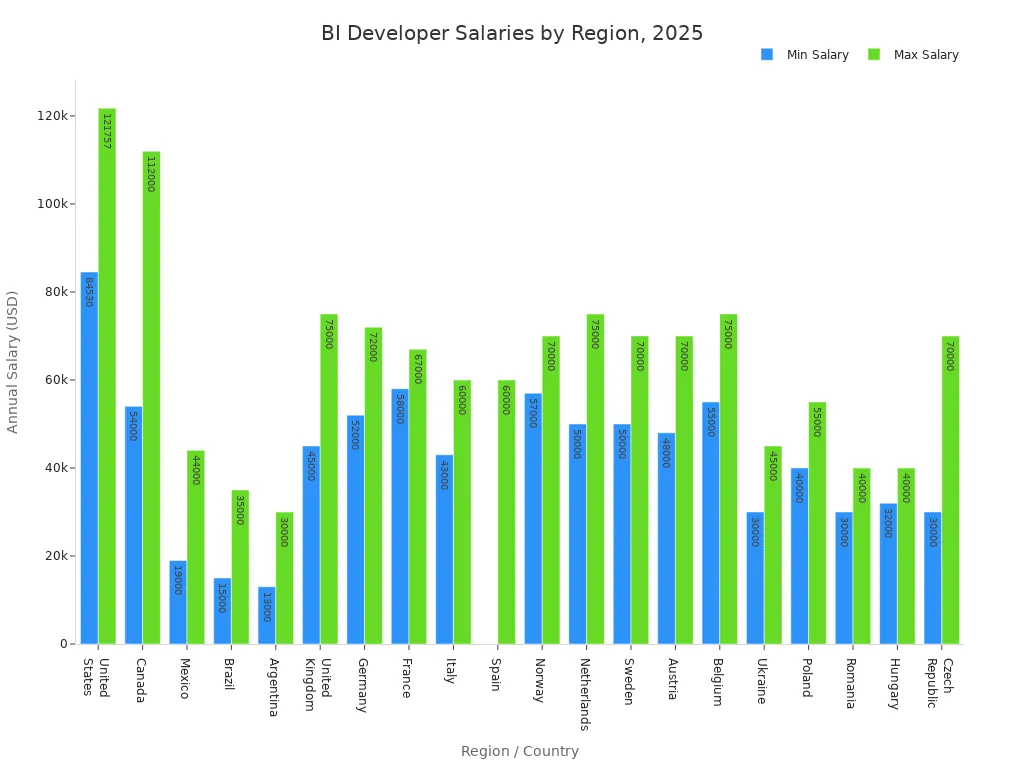
Salaries for these roles vary by region and experience. In the United States, salaries range from about $84,530 to $121,757 per year. Top-paying regions include California and the District of Columbia. As professionals move into senior and leadership roles, they often see significant increases in salary and responsibility.
Note: Advancement depends on continuous learning, gaining certifications, and building experience with new tools and technologies. Leadership roles require strong communication and project management skills.

Artificial intelligence is transforming business intelligence in 2025. Companies now use AI agents to manage complex tasks and automate business processes. These agents help streamline operations and improve customer experiences. Advanced generative AI supports creative industries by enhancing content generation and personalization. Digital twins simulate real-world processes, allowing organizations to optimize operations. Edge AI enables local processing, which is important for sectors like healthcare and automotive.
| AI Integration Aspect | Description and Impact on Business Intelligence |
|---|---|
| AI Agents | Manage complex tasks, automate processes, and improve customer experience. |
| Advanced Generative AI | Enhance content creation and personalization for creative industries. |
| Digital Twins | Simulate and optimize business operations. |
| Edge AI | Enable local, real-time decisions without cloud dependency. |
| Ethical Data Analytics | Ensure compliance with ethical standards, addressing bias and privacy. |
| Predictive Analytics | Anticipate demand, prevent disruptions, and optimize investments. |
| Hyper-personalization | Deepen customer engagement in retail, health, and finance. |
| Intelligent Automation | Improve operational efficiency and decision-making. |
| Human-AI Synergy | Enhance human capabilities through AI collaboration. |
| Leadership and Team Readiness | Require specialized leadership and team training for successful AI adoption. |
FanRuan has played a leading role in advancing AI-powered business intelligence. The company’s FineBI platform integrates AI-driven analytics, predictive modeling, and natural language processing. These features help organizations make faster, smarter decisions and support data-driven decision making across all levels.
Real-time analytics has become a standard feature in modern business intelligence. Organizations now expect instant access to data and insights. This shift allows teams to respond quickly to market changes, customer needs, and operational challenges. FineBI supports real-time data integration, enabling users to analyze up-to-date information from multiple sources. This capability reduces delays and improves the accuracy of business decisions.
Companies use real-time analytics to monitor key performance indicators, detect anomalies, and forecast trends. Predictive analytics, powered by AI, helps anticipate demand and prevent supply chain disruptions. Real-time dashboards provide a unified view of business operations, supporting proactive management.
FanRuan’s commitment to innovation is clear in its focus on real-time analytics. The company’s solutions empower users to act on the latest data, improving agility and competitiveness in a fast-changing market.
Self-service business intelligence continues to grow rapidly. More organizations want to empower employees to explore data and create reports without IT support. Market research shows that large enterprises hold the largest share of the self-service BI market, but small and medium-sized businesses are adopting these tools as well. North America leads in adoption, while Asia Pacific is experiencing fast growth due to digital transformation.
FanRuan’s achievements in self-service BI have helped democratize data access. The company’s products allow employees to innovate, optimize organizational structure, and improve the use of data assets. As a recognized leader in the global business intelligence market, FanRuan continues to drive trends such as AI integration, data democratization, and real-time analytics.
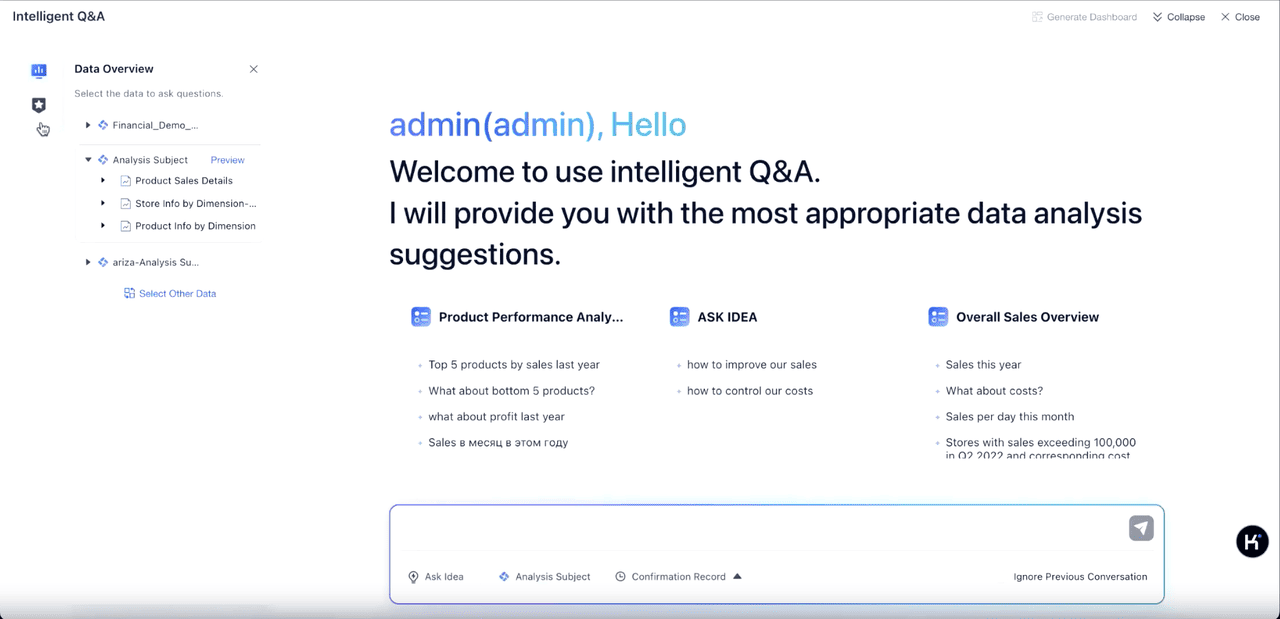
Note: The future of business intelligence will focus on AI-powered insights, real-time data access, and self-service tools. These trends will help organizations become more agile and support better data-driven decision making.
Industry experts highlight that business intelligence has shifted from IT-dependent systems to AI-powered, user-friendly platforms. This change allows more people to access and use data for faster, data-driven decision making. FineBI, developed by FanRuan, stands out for its wide platform support, strong training resources, and accessible free trial options. These features help professionals build skills and adapt to new technologies. Staying updated with business intelligence trends opens doors to rewarding careers and helps organizations thrive in a data-focused world.
10 Business Intelligence Jobs Hiring Now That You Should Know
A business intelligence developer prepares data, builds dashboards, and works with teams. They clean and organize information, create reports, and help others understand data. They use tools like FineBI to make data easy to use.
Many industries hire business intelligence developers. These include healthcare, finance, retail, manufacturing, and technology. Companies in these fields need experts to turn data into useful insights.
FineBI is a self-service business intelligence platform. It helps users connect to many data sources, analyze information, and create dashboards. FineBI makes it easy for people to find answers and share results.
AI helps automate data analysis and reporting. It finds patterns, predicts trends, and answers questions in plain language. AI tools like FineBI’s FineChatBI make business intelligence faster and more accurate.
Yes. Modern platforms like FineBI use drag-and-drop features and natural language queries. These tools let people without coding skills explore data, build reports, and make decisions.
A business intelligence developer needs technical skills like SQL and data modeling. They also need soft skills such as communication, problem-solving, and teamwork. These skills help them turn data into clear, useful insights.
FineDataLink integrates and synchronizes data from many sources. It cleans and prepares data for analysis. This platform ensures that business intelligence tools like FineBI always use accurate and up-to-date information.
Real-time analytics gives instant insights. Teams can react quickly to changes, spot problems early, and make better decisions. FineBI supports real-time data, helping organizations stay competitive.

The Author
Lewis
Senior Data Analyst at FanRuan
Related Articles
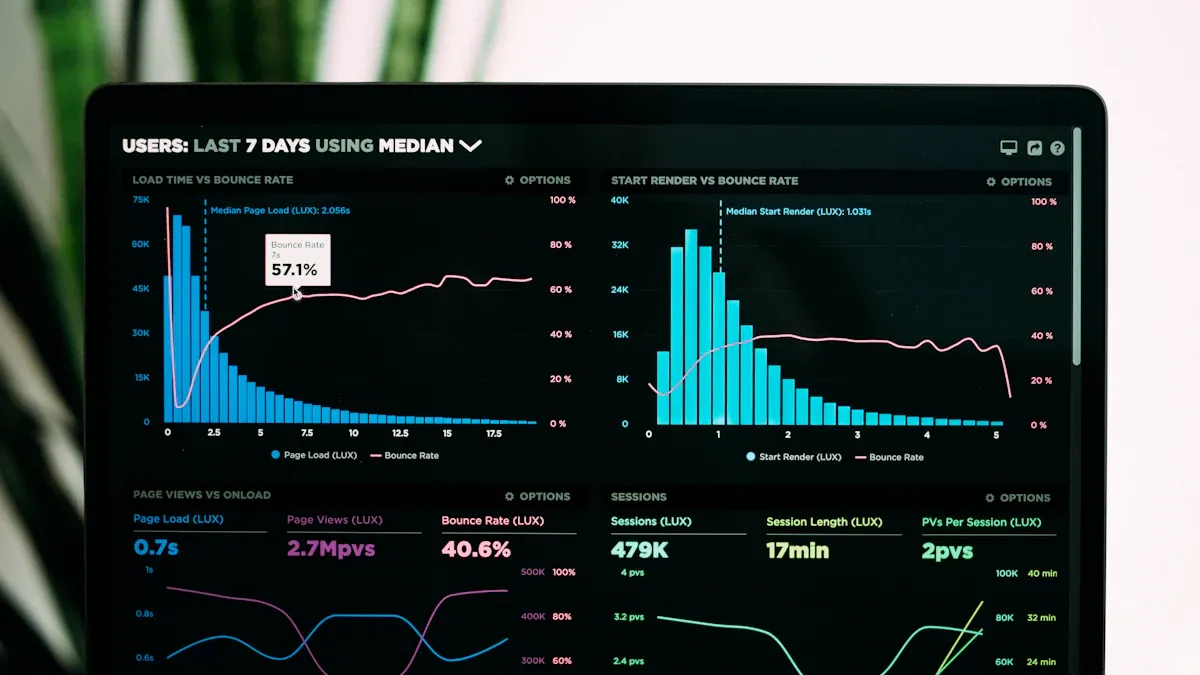
What is a Business Intelligence System and How Does It Work
A business intelligence system collects, analyzes, and visualizes data, turning raw information into actionable insights for smarter business decisions.
Lewis
Jan 04, 2026

Top 3 Retail Management Software Picks
Compare the top 3 retail management software. See features, pricing, and which solution fits your business needs for inventory and sales.
Lewis
Dec 30, 2025

What Are Enterprise BI Solutions and How Do They Work
Enterprise BI solutions unify business data, enabling real-time analytics, secure collaboration, and smarter decision-making across your organization.
Lewis
Dec 22, 2025